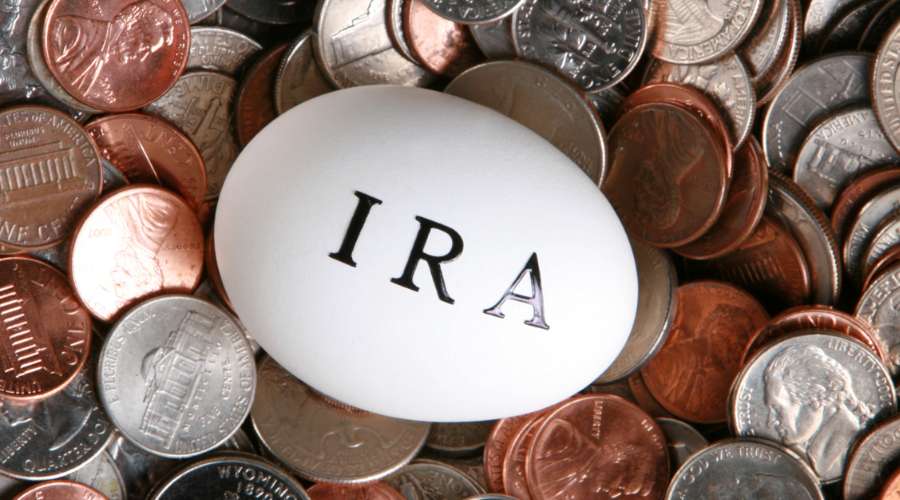Gold IRAs are individual retirement accounts offering tax-free investment returns and various tax benefits. Gold IRA plans allow people aged 55 years or older to invest in up to six different types of assets, such as stocks and bonds, while offering an additional option by allowing them to purchase a limited amount of precious metals like gold or silver. You can also find gold IRA plans in financial institutions and third-party marketers.
While these IRAs reduce your overall exposure for consumption, they do not mitigate the risks associated with stocks because they can be volatile over time. If you are considering investing in a gold or silver IRA, you can choose between one held by the custodian or one outside the country. It will be your own decision to select which type of IRA works best for your situation. Just review their tax liabilities and incidences before committing to one plan over another.
If you are interested in investing, make sure to take a look at our highest recommended companies for this year!
>> Click Here For A List Of The 5 Highest Recommended Precious Metals Investment Companies <<
Is a Gold IRA Right for You?

Gold IRAs are created to provide stable, long-term gains made possible by bullion sales. These accounts give you access and control over current prices, allowing you to purchase or sell immediately whenever the right time comes, with little to no fees required for withdrawals and exchanges. One of the best things about gold IRAs is the ability to invest in precious metals.
As a result, investors are protected against inflation, especially when prices go up over time. This means that it’s a good idea for you to seriously consider purchasing gold for your retirement plan if you want to reduce your risk and exposure to both stock trading and fixed-income products from the stock market. Also, ensure you understand the various types of precious metals, as they differ in quality and price.
You can check out a list of assets eligible for purchase under IRA or 401K plans on the IRS website to see which metals best suit your needs. Also, if you need an IRA account where you currently reside or are thinking about opening one, some great companies offer gold IRAs as an investment option.
When you buy gold for your IRA, you can act autonomously and have greater control over your funds. You can withdraw your money whenever you want as long as a few conditions are met first, including how long it has been held in the account. You can also purchase silver and other precious metals that typically go up when the economy is on shaky ground or at risk of collapse.
What Are the Benefits of a Gold IRA?
One of the main benefits of a gold IRA is diversification. When you invest in precious metals rather than stocks and bonds, overall returns are lower, but there are more growth opportunities. Gold IRAs offer more flexibility in the amount of money you have to invest than a classic IRA.
You can also make your investment in precious metals as passive or aggressive as you’d like. You might consider purchasing gold coins and bars if you're a low-risk investor. However, if you’re looking to make higher returns from your money and seek greater investment options, a future option is likely worth considering.
Gold IRAs are subject to the same tax rules as traditional IRAs, so you can be exempt from paying taxes on your gains. Also, if you’re 55 or older, you can take advantage of the retirement plan’s benefits by investing up to $100,000 per year.
Contributions to a traditional IRA may be tax-deductible, and the accounts' investments grow tax-deferred until they are withdrawn. This means you will only pay taxes on the appreciation of your gold once you take it out of the account. With a Roth IRA, contributions are made with after-tax dollars, but the investments grow tax-free, and withdrawals in retirement are also tax-free.
Gold IRAs can provide you with stable returns over time. Gold prices are significantly higher than they have been at any other time, and demand for it has increased thanks to developments in markets like India and China. This means that by investing in gold, you can get greater returns on your money than if you purchase stocks, bonds, or ordinary assets.
Another important benefit of these types of accounts is that they offer more tax benefits than other IRA plans.
Are Gold IRA Plans Secure?

Gold IRAs are extremely secure and safe to invest in, possibly because the US Treasury Department protects the metals. Under the US Mint Act of 1792, American citizens could own gold coins and bullion with as much as $10,000 as long as they came from a legal source.
In addition, gold is a considerable asset for many investors, just like those who have traditional IRA plans. There are three types of gold investments: coins, bars, and rounds. Coins include proof eagles; however, the bulk contains less than 10 per cent silver or any other precious metal alloy. They collect more from the value of the gold used to mint them, and all gold coins are worth more than their weight in gold. Gold bars can be bought from different countries, including the United States and Canada.
Rounds, which don’t include coins and bars, are worth more than their weight in precious metal. Because the process involved in creating a round is less complex, they are less valuable than gold coins and bars. However, they have a similar value to those that use precious metals like silver or other elements.
Also, because of the large range of prices you’ll encounter when looking for gold IRA plans within the US, it is wise to do some due diligence on any gold IRAs you participate in. One of the primary concerns for investors is the physical security of their gold. A gold IRA plan holds the physical gold in a secure, insured depository.
This ensures that the gold is protected from theft, damage, or loss. In addition, the depository must follow strict security protocols, including 24/7 surveillance and multiple layers of security measures.
Another important factor is the company's financial stability in managing the gold IRA plan. Reputable companies should be fully licensed and regulated and have a track record of stability and financial performance. Researching and carefully evaluating the company's reputation before investing in a gold IRA plan is always a good idea.
Are There Penalties for Withdrawing Money from a Gold IRA?
Like any other IRA, there is no penalty for withdrawing your money from a gold plan if you are ready to retire or over the age of 59 ½ years old. You can also withdraw funds without incurring taxes if you are using them to pay medical expenses exceeding 10% of your adjusted gross income and are at least 65 years old.
Regardless of the reason behind your decision to cash out, remember that you will have to pay penalties and taxes on all withdrawals taken before age 59 ½. The amount of penalty and taxes will depend on how long the accounts remain active prior to withdrawing them.
But if you withdraw money from your IRA within the first two years of opening it or if you decide to roll over or transfer your current IRA plan, expect a 10% early withdrawal tax added on top of taxes for penalties.
If you are under 59 ½ years old, the IRS will add a 25% penalty and income taxes on all withdrawals from your gold retirement account. In addition, there is no required minimum distribution while investors remain alive to avoid incurring penalties.
If managed wisely, IRAs can help you achieve financial freedom, allowing you to enjoy financial security in your golden years. Gold IRA plans are a smart way to secure your future, especially if you’re looking for long-term, stable investments.
How Do Gold IRA Plans Work

There are two general types of plans: those close to you, which allow you to sell your gold to the plan’s custodian as long as you reside in the US, and those held outside the country, which other firms administer.
Gold IRA accounts can also be structured in various ways so that each customer can customize their account and decide on their level of risk.
The choice is yours regarding what individualized options you want on your golden retirement plan. You can choose whether or not the account will be held inside or outside the country. Many companies offer these types of IRA plans, so it is perfectly acceptable to shop around and examine all the fees and tax liabilities associated with each plan before you make your decision.
If you decide to go with an IRA plan, you’ll have to decide whether or not you want to buy gold or silver from the company that offers your plan. If you choose a gold IRA, the company will give you a list of bullion dealers where you can physically go and purchase coins and bars.
Gold IRAs work like other types of IRA plans based on contributions made by individuals with annual or adjusted gross income that falls below a certain limit set by the IRS. They are made to help individuals with high annual incomes to reduce their tax burden. If you are ready, there are two types of gold IRA plans.
The first type, a self-directed gold IRA account, works like one of the traditional IRAs in which you first choose the type of account to use — for example, an exchange-traded fund that tracks a particular market trend.
Then, you will be required to make a designated contribution toward your retirement plan from an eligible retirement plan or other discretionary funds within the same financial institution (or investment firm). You can also set up automatic deductions from your pay check or direct deposit.
The other type is known as a self-directed precious metals IRA. The only difference between the two is that in this type of gold IRA plan, you will be required to select gold or silver bars and coins for storage. The process for setting up your account, however, will remain the same.
What Are the Financial Advantages of a Gold IRA?
If you are expecting or have already retired, then a gold IRA plan can help you minimize your tax burden and transfer wealth to your heirs. Most people favour owning an equity investment over gold, but gold has a lower cost-to-earnings ratio. Because it is a haven for investors during economic turmoil, it can provide an excellent alternative when the stock market is down.
The interest rates you get from depository receipts, or DRs (also known as tokens), are also extremely attractive compared to those from bank certificates of deposit. DRs provide higher interest rates than CDs and CDs without maintaining minimum balance requirements.
This puts DRs at an advantage over standard bank accounts and traditional IRAs. They are not subject to income taxes, so they are a great alternative to CDs and other fixed-income investments. Since there are no income restrictions, anyone can invest in these gold deposits.
So, if you have $10,000 in your bank account and the interest rate you could get on your CD is 1.5%, you will most likely get a return on this amount of money of about $15 or $16 each year. But if you were to transfer the same amount of money into a DR, you would receive an annual return based on the DR’s yield.
Furthermore, DRs can be held within IRAs without extra fees or taxes being charged, like those with bank certificates of deposit (CDs). Gold IRAs have very low administrative costs and offer competitive interest rates — which means you can invest and save more money over time. That is why gold coins or bullion are a better alternative to CDs.
Tax Implications on IRA Plans

Gold IRA plans are structured as tax-sheltered retirement plans that offer a supplemental type of retirement plan designed specifically to invest in precious metals. In this regard, you can buy, sell and hold gold at any time; however, you will only be taxed when you sell the metal.
In case of a death in the family or a divorce, or if you need cash for medical expenses or emergencies, there is also the option to sell your gold coins and bars and pay fewer taxes out of pocket than you would if you liquidated other assets like stocks.
Another way that gold IRAs can help you lower your taxes is to convert them into DRs through a TFE. While DRs are not the same as certificates of deposit, they can be bought and sold just like cash with no restrictions on participation or withdrawal.
Also, a tax-free exchange of gold holdings is another way a gold IRA helps you lower your taxes. There is no Internal Revenue Service (IRS) limit on how much of your retirement funds you can use to pay off debts or cover medical expenses without being taxed as income.
Most of the time, you can also pass on the wealth you have accumulated tax-efficiently. When you inherit the money in your partner’s gold IRA, he or she can avoid taxes by rolling over the funds into his or her own IRA.
When it comes to inheriting an IRA plan, some deadlines need to be met before any withdrawals can be made. You will have 60 days after you inherit a gold plan for your spouse and 120 days for any other beneficiary (such as a child) to take out any money without penalty. You will have to take an immediate distribution that is taxable if you do not roll over your inherited gold plan into your retirement account.
If you inherit a non-spousal beneficiary, any money you take out will be taxable as income in the year of distribution. Your IRA custodian can help you with all the necessary paperwork and forms – which are provided by the IRS – and guide you through the process.
The amount of money that can be withdrawn from a gold IRA has changed several times, so it is most important to consult with whoever administers your plan.
Sometimes, you can change the beneficiary of a gold IRA or transfer ownership to a spouse without penalty. Still, the tax implications will vary from one case to another. If you need to take a tax-free distribution from your gold IRA due to death, divorce, or age, then you will have to change the beneficiary name of your gold account so that the money can flow into your IRA plan.
If, however, you wish to leave the original beneficiary in place, then all that has to be done is fill out the necessary paperwork. In 1999, Congress passed the Alternative Minimum Tax (AMT), designed to ensure that taxpayers who took advantage of so many tax breaks paid their fair share of taxes. However, people using alternative investments or tax shelters are now required to pay an AMT-based alternative minimum tax on any income over $48,000.
This has made it quite challenging for IRA investments in gold coins and bullion.
It is important to note that there are no penalties for delaying taking distributions in case of death or for any other reason outside these two scenarios. Your custodian can help you with this process if you still need to determine how it will work.
It is also essential to know that if you are over the age of 59 1/2 and have not taken out any distributions of earnings from your gold IRA plan, then you are exempt from paying the 10 per cent extra tax on early withdrawals.
If you want to maximize your retirement plan and generate more income, then speaking with a financial advisor about your gold IRAs is best. You can roll your gold IRA account into a new one any time you would like or decide to remove the funds from the original plan to invest in a new one.
You will have 60 days from rolling over your gold IRA into a different one to take out any earnings that were generated by the sale of precious metals without penalty or taxation.
Frequently Asked Questions
Can I roll over my IRA account into a gold IRA plan?
You can roll over your existing IRA account into a gold IRA plan administered by the same company. It is impossible to transfer your plans directly, but you can transfer them indirectly through those companies that offer this service, like Goldco Precious Metals International.
Can an employer or a friend contribute to my gold IRA plan?
An employer or a friend may not contribute to your IRA plan, no matter how much they would want to. They are only allowed to make contributions on behalf of an employee or another person receiving the benefit of an employee retirement plan and have accumulated funds that are being held in that retirement plan.
If I roll over my gold IRA, will I have to pay taxes?
If you roll over your gold IRA, there will be no tax consequences. However, if you take the money out tax-free, the IRS will require you to pay it in income tax.
Are gold coins and bullion taxed?
Gold coins and bullion are not taxed under current IRS rules. However, there is a possibility that this will change in the future as they still consider these items as “property” that can be used for investment purposes. All forms of gold (including bars) would be subject to taxes at ordinary income rates.
Don't forget to check out our top recommended companies before investing!
